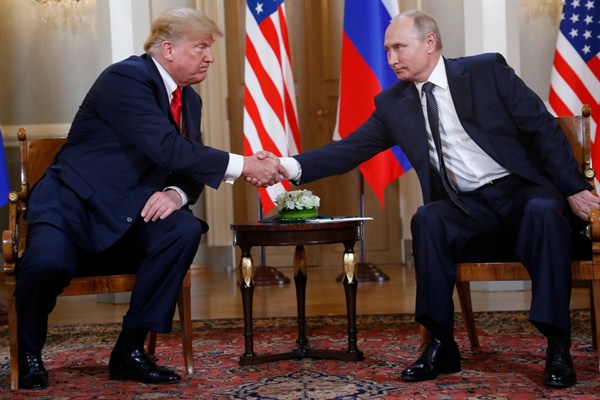President Donald Trump’s summit in Helsinki with his Russian counterpart, Vladimir Putin, will almost certainly be a watershed moment in his presidency. Trump’s refusal to publicly hold Putin and Russia accountable for the unraveling of bilateral ties since 2014—most prominently, his equivocating response to a question about Russian meddling in the 2016 presidential election—has generated widespread public outrage, even among Trump’s most vocal supporters in the media and political classes.
What remains to be seen is how that backlash affects his domestic base of political support. Will the Helsinki summit prove to be Trump’s “emperor has no clothes” moment, when the president whose political persona is based on strength and fearlessness was revealed to be a weak and cowering Putin fanboy? Or will this, too, be forgiven by the faithful, like all of Trump’s previous outrages?
The answers to those questions will become clearer in the weeks and months ahead, culminating in the congressional midterm elections in November. They will determine whether Trump and Trumpism will leave a lasting impact on American politics, or whether they end up being an anomaly. At stake are the futures of the Republican Party and the broad bipartisan consensus that has historically underpinned U.S. foreign policy.

